The stigmatization of Muslims in today’s Britain - By Dr. Halla Diyab, Saudi Gazette
In the wake of the growing number of tragic incidents witnessed in the current terror epidemic in Britain, involving Muslims either as victims or perpetrators, the obsession with “labels” is at its peak.
The media’s double standards and the reduction of identity of those who are identified by the Muslim faith are labelled and accepted. The pressure British Muslims of today face to define their belonging to the British society in terms of labels and acceptance, and the parameters that supposedly define Muslim individuals’ worth to how they do or do not express their faith identity, all brings into question whether British Muslims are stigmatized in Britain.
The London Bridge attack and Manchester Arena attack triggered a big spear in hate and Islamophobic crimes with incidents reaching 54 a day after the latter, and a 40 percent increase in racist incidents after London Attacks. Labels like “the terrorist Muslims”, “go back to your country”, “another Muslim blew himself up”, and the subtle suspicion of a Muslim with a backpack was the unspoken rhetoric of fear and distrust in Muslims in every aspect of today’s British streets.
This public fear was also fed by constant media’s focus on the perpetrators of the attack, with the photo and the life’s story of Khalid Masood of London Westminster, Salman Abedi of Manchester Arena, and Khuram But, Rachid Redouane, and Youssef Zaghba of London Bridge occupying the front pages of the daily papers, and catching the national and international headlines.
This leaves in the shadow those Muslim heroes who in the wake of the attacks, rushed to help victims, from taxi drivers to doctors, from restaurants offering free food to emergency workers. The public gaze and focus was fixated on one thing and one thing only; the face of the perpetrators and the archetypical image they fulfil of Muslim terrorists.
The Grenfell Tower
The events of the Grenfell Tower catastrophe which left 79 people dead or missing presumed dead constructed a new rhetoric of Muslims to now be labelled as life-savers. Yesterday labelled-terrorists, today are hailed as heroes, and the tone suddenly changes from seeing Islam as a religion of violence, to a trend about its most important pillar, fasting, with the beginning of the trend “thank you Ramadan”.
Nevertheless, the heroism of British Muslims failed to bring the world media attention to their good deeds as much as the acts of Muslim misfits and loners did. Muslims like Khalid Suleman Ahmed, 20, who lived on the eighth floor of Grenfell tower, banged on his neighbours’ doors to save their lives, but did not make the headlines as Salman Abedi or Khalid Masood did.
The humanitarian aid and support Muslim community offered after the London and Manchester attacks went unrecognized simply because the perpetrators of the very act of the attacks happened to be Muslims. Many viewed in the recent labelling of Muslims as “heroes”, “life-savers” and “supporters” of the victims of Grenfell Tower tragedy, as one of the positives to come from this catastrophic incident.
However, this conveys a parody of how easily public perceptions can be twisted, and labels can be shifted, and so yesterday labelled-terrorists and suicide-bombers in waiting, are labelled today as heroes, and the mosques which have been accused of radicalizing Muslims, their boys who came from prayers are praised as heroes.
Today the Finsbury Park mosque attack which targeted a Muslim place of worship leaving one person dead and eight others injured, prove that there is underlying prejudice and Islamophobic attitudes which are now shifting from verbal abuse to physical violence.
British Muslims are now subjective to the collective manipulative rhetoric, alternating between the language of shrewd hostility onto that of warm acceptance. This very tactic of manipulation operates on rhetoric, which the public shapes and modifies according to the actions of those who are identified with the Muslim faith; choosing when they want them to be seen as violent terrorists, when they want to be seen as heroes, and when they label them as victims.
So language and terminology are used to diagnose when the Muslim faith succeeds in integrating with the British community and when it fails to do so. This exerts unendurable pressure on British Muslims whose acts are under constant public scrutiny, and fears have risen around what category and what labels in which they will be pigeonholed into next.
Collective labelling
This form of collective labelling is the result of the rise in the public’s “fear of the unknown danger”, seemingly exacerbated by those who are identified with the Muslim faith. The recent terrorist attacks feed the public fear, and succeeds indirectly in evoking the collective tendency of segregating Muslims and categorizing them according to their manifestation of their faith, religion and ideological affiliations, and the retaliation of the faith-based acts on them.
This is mainly because extremists – both the religious fundamentalists and those who sway to the far-right- aim to break the British Muslims from their identification of their national identity as British, and hence to be seen solely on the basis of their religious identity.
This form of collective labelling is single-handedly a new form of skilfully manipulating both notions of faith and identity in today’s Britain, to carve out a sharp classification of the good Muslims and the bad Muslims, Muslim heroes and the Muslim victims, and the ones who are praised publically and the ones who are cursed.
Consequently, British Muslims are not seen solely as individuals and British citizens’ before their faith, and religious ideological affiliations. The victims of today’s attack at Finsbury Park mosque and the boys who rushed to save their neighbours and support victims at Grenfell Tower are referred to as “Muslims” not as Londoners, or British or English, they were identified by their religion.
The public language and terminology should be widened to see British Muslim’s before their faith, colour, and ethnicity, and to be seen as humans and individuals who are part and parcel of the British society.
Latest News
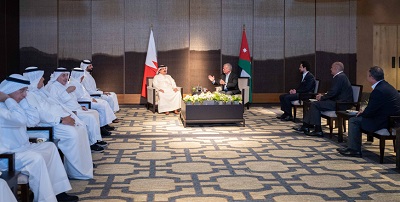 King, Bahrain monarch stress need to maintain Arab coordination
King, Bahrain monarch stress need to maintain Arab coordination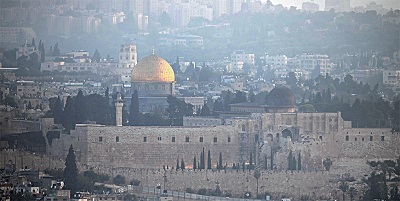 Security Council to vote Thursday on Palestinian state UN membership
Security Council to vote Thursday on Palestinian state UN membership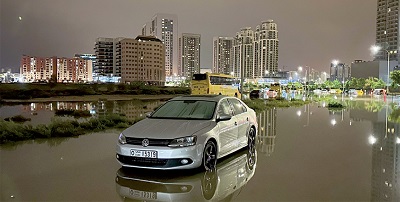 Dubai reels from floods chaos after record rains
Dubai reels from floods chaos after record rains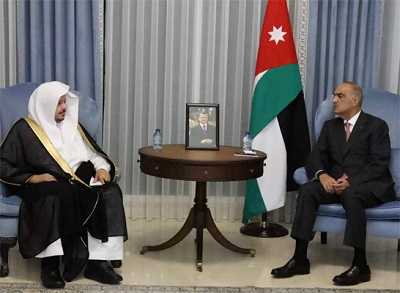 Khasawneh, Saudi Shura Council speaker discuss bilateral ties, regional developments
Khasawneh, Saudi Shura Council speaker discuss bilateral ties, regional developments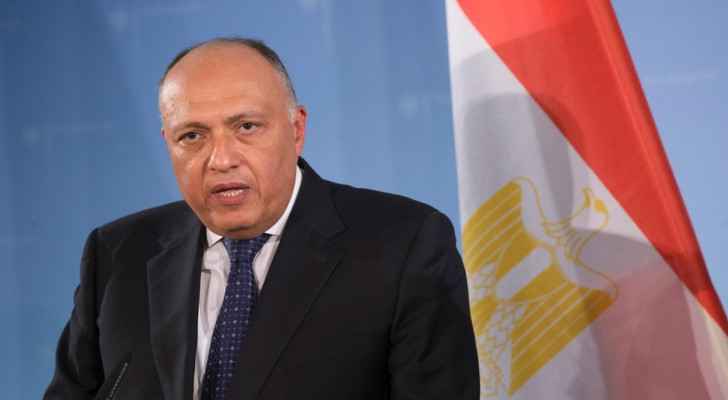 Egyptian Foreign Minister condemns potential Palestinian displacement as 'war crime'
Egyptian Foreign Minister condemns potential Palestinian displacement as 'war crime'
Most Read Articles
- Senate president, British ambassador discuss strategic partnership, regional stability
- Jordan urges UN to recognise Palestine as state
- JAF carries out seven more airdrops of aid into Gaza
- Temperatures to near 40 degree mark next week in Jordan
- Safadi, Iranian counterpart discuss war on Gaza, regional escalation
- UN chief warns Mideast on brink of ‘full-scale regional conflict’
- US vetoes Security Council resolution on full Palestinian UN membership
- Google fires 28 employees for protesting $1.2 billion cloud deal with “Israeli” army
- Biden urges Congress to pass 'pivotal' Ukraine, Israel war aid
- Israeli Occupation strike inside Iran responds to Tehran's provocation, reports say